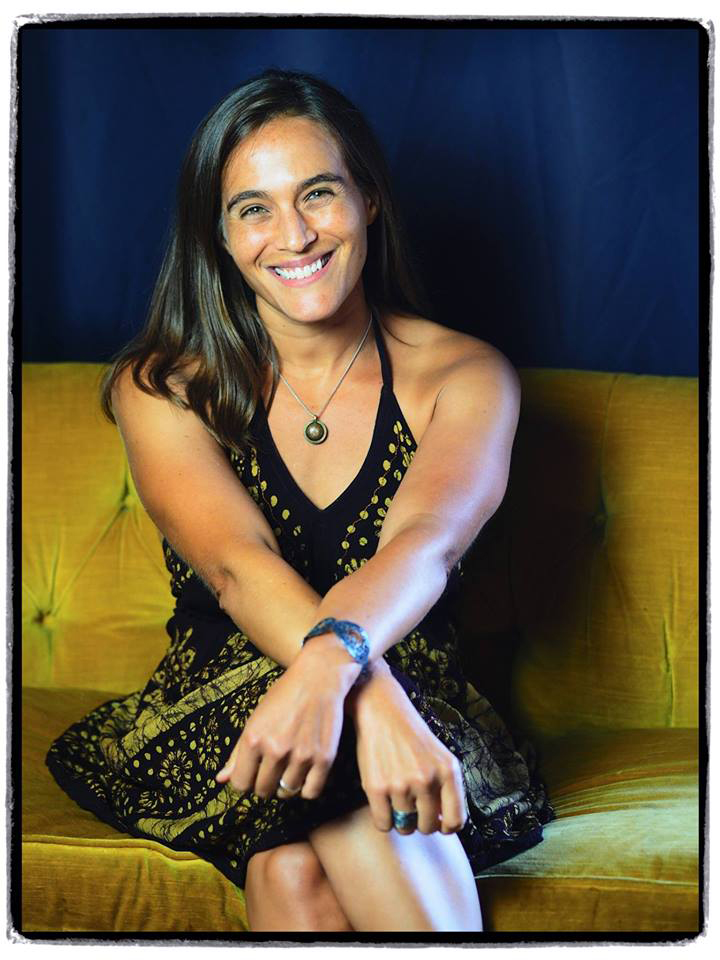Asheville-based poet Jessica Jacobs didn’t always think of herself as a Jewish poet.
“When I wrote my first two books,” she says, “I was living a largely secular life. If you had asked me, I would say, ‘Yeah, sure, I’m a Jewish person, but it’s not a really big part of my life.’” Now, she says, “I go back and look at those books, and I can tell you they’re written through a very Jewish lens. And I wasn’t aware of it.”
Over time, Jacobs grew inspired to more deliberately merge her religious and poetic identities. On Sept. 1, she launched the nonprofit Yetzirah, the first literary organization in the U.S. for Jewish poets. Yetzirah, she explains, is a word from Jewish mysticism referring to the world of formation.
Since its online debut, Yetzirah has attracted some 900 subscribers from around the country and world. Jacobs describes the website as a hearth for Jewish poetry. “If you think traditionally of what a hearth is, it’s a place of warmth where people gather together to share a meal or to talk about their day,” she explains. “And that’s what I’m hoping it can be for Jewish poetry, a place where Jewish writers can come and find support.”
And now Yetzirah is gearing up for its next phase. On Tuesday, June 20, the nonprofit will launch its first in-person event: a five-day Jewish poetry conference at UNC Asheville. The gathering will feature 34 poets from 14 states, as well as two international poets coming from Israel and Germany.
Unlike traditional workshops, where submissions are critiqued, Jacobs describes the conference as a generative workshop. “This is about creating new work,” she says. And while classes are full, Jacobs says the public is invited to attend all the afternoon and evening readings and discussion panels, which take place in person but are also available to view online.
Transcendence
The Yetzirah public events will appeal to anyone who appreciates poetry with a spiritual dimension, says writer Amy Peterson, who also serves as associate pastor at Trinity Episcopal Church. “Jewish people are my siblings,” she says. “I have often found that some of my most interesting and enlightening conversation partners in spiritual and theological discussions have been Jews.”
Along with holding a master’s degree in divinity studies from Duke University, Peterson earned a Master of Fine Arts in creative writing at Seattle Pacific University. She and Jacobs first met at a writer’s conference in Washington state before reconnecting in Western North Carolina, after Peterson relocated here last year.
“Asheville is a great city for literary readings in general,” Peterson says. “But I’m particularly interested in [the Jewish poetry conference] because there is a willingness to address transcendence and to speak openly about faith — issues that you sometimes don’t find in the literary world.”
Of course, not all Jewish poets write religious poetry, Jacobs stresses. “For me, in its most basic terms, Jewish poets write Jewish poetry period,” she says. “I think that’s true whether they’re writing about Torah or they’re writing about eating a ham sandwich.”
Rick Chess, an acclaimed Asheville Jewish poet and the treasurer of Yetzirah, agrees. “Most of these poets don’t just write about Jewish things. In fact, some of them write only a little bit about Jewish things. For some, the Jewish stuff is kind of underneath the surface. You don’t need to know any of it to be fully engaged by the poems. These are all works of art that transcend any cultural identity.”
Pay it forward
Jacobs says she started the Jewish poetry conference as a way to give back to a community that has been so welcoming to her. She and her wife, fellow poet Nickole Brown, relocated to Asheville in 2016 by way of Arkansas. No stranger to the city, Jacobs had visited the area several times before to attend various reading events.
Before moving here, she says she and Brown made a long list of things they were looking for in a new home base, including a vibrant arts community.
“And every time we would stop at a place, we would say, ‘How does this tick the boxes?’ And Asheville ticked them all,” she remembers. “We just fell in love with the literary community and how many artists and musicians and poets were here.”
Jacobs envisions the Jewish poetry conference becoming an annual event for Asheville.
“We have partnered with UNCA’s Center for Jewish Studies and we’re looking forward to continue working with them,” she says.
And it’s important, she adds, to keep the series as an in-person happening. “We also have an annual online reading series, which means that people from around the country and the world — from Israel, from London — can all gather in a virtual space. And that’s really beautiful,” she says. “But there’s something magical that happens when people sit down in a room to write and share a meal together.”
Editor’s note: This story was updated June 16.




Before you comment
The comments section is here to provide a platform for civil dialogue on the issues we face together as a local community. Xpress is committed to offering this platform for all voices, but when the tone of the discussion gets nasty or strays off topic, we believe many people choose not to participate. Xpress editors are determined to moderate comments to ensure a constructive interchange is maintained. All comments judged not to be in keeping with the spirit of civil discourse will be removed and repeat violators will be banned. See here for our terms of service. Thank you for being part of this effort to promote respectful discussion.